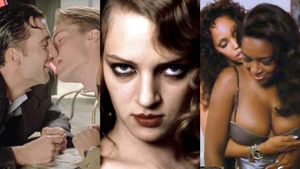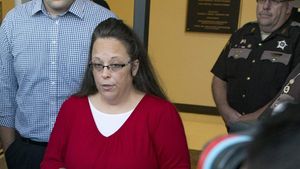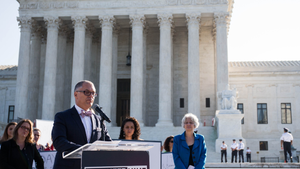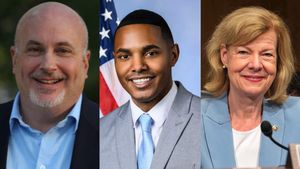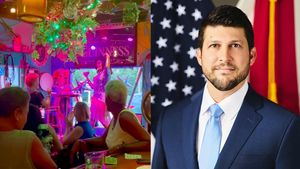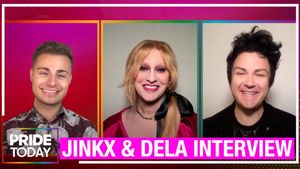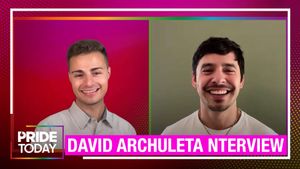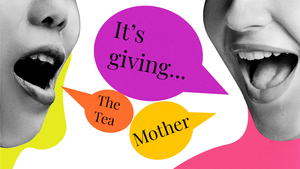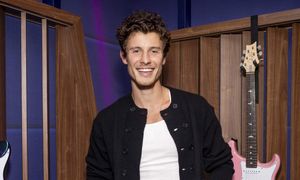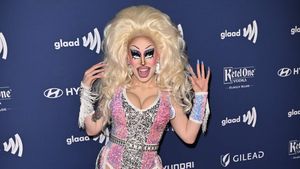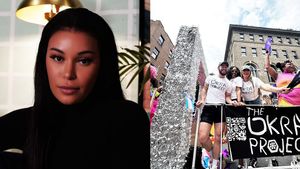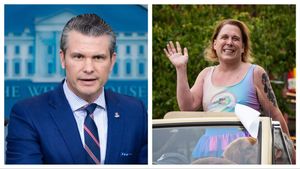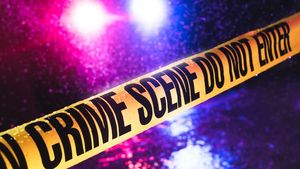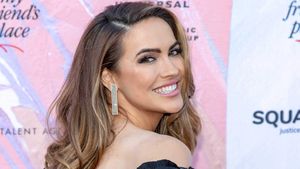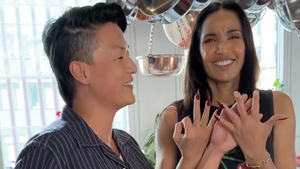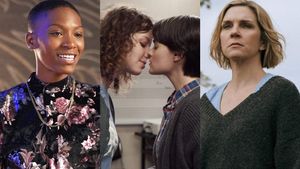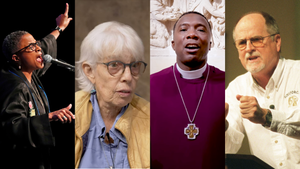All Rights reserved
By continuing to use our site, you agree to our Privacy Policy and Terms of Use.
Pete Buttigieg says he struggles with some of the critiques of him in LGBTQ+ press.
The candidate, who is the first LGBTQ+ person to compete in the Democratic presidential primaries, sat down with Sirius XM radio host Clay Cane this week to discuss his historic campaign. Cane asked the South Bend, Indiana mayor how his candidacy would have been impacted if Buttigieg were "quote unquote 'more effeminate.'"
"I'm sure you've heard this in [LGBTQ+] circles," Cane said, "that masculine-presenting men have more access."
\u201cIf you missed my @PeteButtigieg interview, here is a clip of him talking about some of the critiques of him in LGBT media. You can listen to the full interview on demand on @SXMUrbanView. #claycaneshow #claynation #congressionalblackcaucus\u201d— Clay 'Critical Thinking Theory' Cane (@Clay 'Critical Thinking Theory' Cane) 1568836547
EXPAND
Buttigieg responded that it was "tough for [him] to know" how his campaign would be different if he were more visibly queer and added that those kinds of critiques are why he can't read stories about himself in LGBTQ+ publications -- or read LGBTQ+ publications at all, it seems.
"I am what I am, you know, and there's going to be a lot of that," the 37-year-old said. "That's why I can't even read the [LGBTQ+] media anymore because it's all: 'Too gay, not gay enough, wrong kind of gay.'
"All I know is that life became a lot easier when I started allowing myself to be myself," he added, "and I'll let other people write up whether I'm 'too this' or 'too that.'"
Trending stories
What's curious about this critique of his coverage in LGBTQ+ press is that most of the publications which have grappled with the false notion that Buttigieg "isn't gay enough" are outside the queer media space. The butt of that criticism stems from a trio of controversial op-eds published in The Outline, Slate, and The New Republic -- one of which called the candidate "bad for gays," while another referred to him as "Mary Pete."
The New Republic story was removed following near-universal outrage, while The Outline and Slate pieces garnered angry responses in The Independent and The Daily Beast.
None of the offending publications, however, are LGBTQ+.
When Out has covered Buttigieg -- most notably for the magazine's June Pride issue -- the criticism has less been about how the candidate presents himself to the world than where he stands on the issues and how he uses his platform.
When staff writer Harron Walker spoke to him for a cover story, she noted that he was "largely averse to discussing concrete policy in interviews," particularly the FOSTA/SESTA bill targeting sex workers. He responded that he wasn't "ready to make policy news on this yet" and pivoted to talking about the need to start a "larger conversation about how we treat sex workers and all of the reasons why this society hesitates to embrace the idea of sex work."
"I don't think all of those ideas are wrong," he added, "but we need to open up debate about these policies, which were well-intentioned but harmful in practice."
When Out covered an August fundraiser for Buttigieg in Los Angeles, the issue was not how "gay" he is. It was that among the myriad issues he discussed with his largely queer crowd, LGBTQ+ rights was not one of them. In that story, this publication also noted that Buttigieg had yet to address LGBTQ+ issues or the historic nature of his candidacy during the two previous rounds of presidential debates.
The problem, thus, wasn't that Buttigieg was the wrong or right kind of gay -- or that there's even any way to be the wrong or right kind of gay. It's that he was continually allowing 2020 challengers like Elizabeth Warren and Beto O'Rourke, both of whom have released detailed LGBTQ+ rights agendas, to lead the policy discussion.
There are also signs the candidate is shifting, whether in response to criticism or despite it. Just days after the story about his L.A. fundraiser was published, Buttigieg confirmed attendance at a forum on LGBTQ+ issues hosted by GLAAD, The Advocate, and One Iowa. And during the third debate, the candidate discussed his coming out story during closing remarks, marking the first time in history that a candidate has discussed being LGBTQ+ during a presidential debate.
"I came back from deployment and realized that you only get to live one life," he said. "And I was not interested in not knowing what it was like to be in love any longer, so I just came out."
Buttigieg is free to read -- or not read -- any publication he likes. He speaks eight languages, so it's not like he lacks options in that regard. But to blame LGBTQ+ media for bad faith criticism he has received since running for president doesn't just retcon his coverage -- it paints critics with the same broad brush he asked not to be used on his campaign.
RELATED | Pete Buttigieg Made History in a Big Way During Democratic Debate




